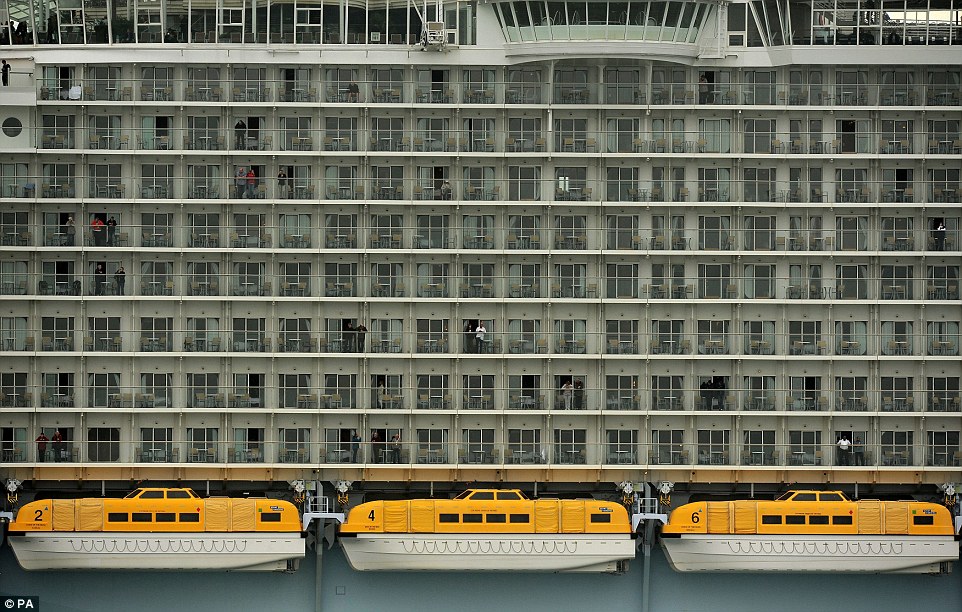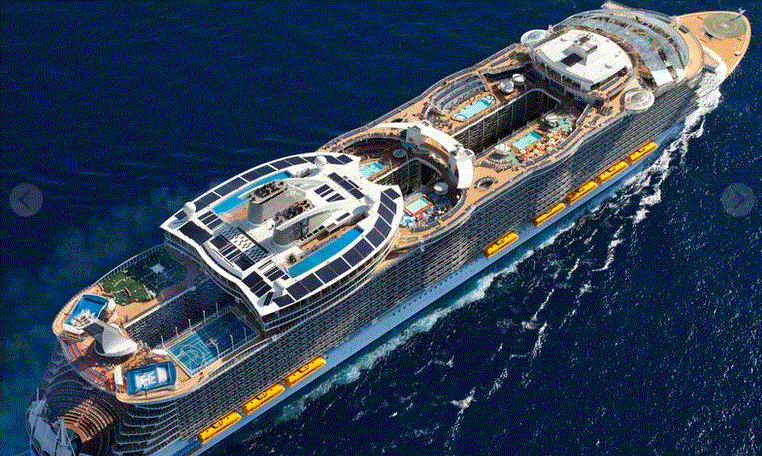The world’s largest cruise ship arrived in the UK today for the first time.
The £800m Oasis Of The Seas sailed into Southampton at 10am on Wednesday in dense fog, welcomed by a crowd of hundreds and helicopters circling overhead.
Weighing 225,282 tonnes, the 1,187ft ship is longer than London’s The Shard is tall, and at 208ft wide, larger than the wingspan of a Boeing 747.
Spread across its 16 decks is an outdoor park with more than 12,000 real plants and trees, an 82-foot long zip wire, and the largest pool on the seas.
There is also a 750-seater arena, ice rink, surf machines, a high-diving performance venue and an elevating bar.
Some other interesting facts :
but how big can these vessels get.
Already in Venice we have seen the government ban the docking of these large vessels whilst they investigate the environmental impact on the city.
Overall, the cruise ships oceanic produce at least 17% of the total emissions of nitrogen oxides, contributing to more than a quarter of total emissions of nitrogen oxides in port cities and coastal areas.
In addition, waste from cruise ships adversely affect the resilience of marine ecosystems, destroying coral reefs (Source: “Climate Change Adaptation and Mitigation in the Tourism Sector: Frameworks, Tools and Practices” by United Nations Environment Program, together with the University of Oxford, p.102)
If you ever choose to embark on one of these marine giants, you must know that your CO2 emissions can be up to 1000 times more than a train journey. (Source: “Climate Change and Tourism. Responding to global challenges’, World Tourism Organization and United Nations Environment Programme, 2008, pp.. 37, 134)



